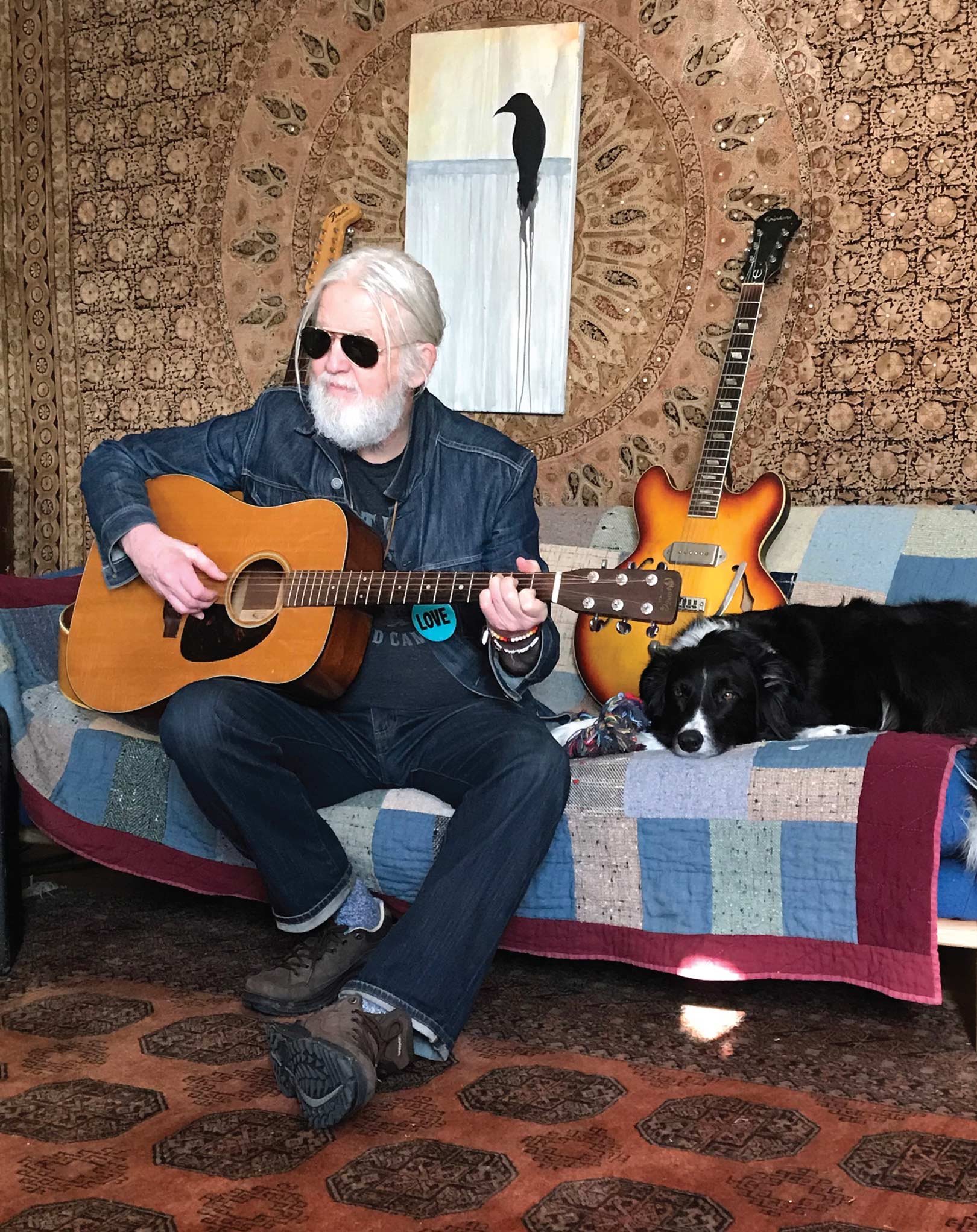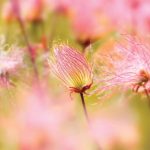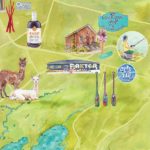
Iconic singer/songwriter Greg Keelor of Blue Rodeo fame finds peace and inspiration in the quiet of the country setting that he calls home.
Greg Keelor’s romance with his country stomping grounds began on a train ride 35 years ago. And he has never looked back. “I was coming home from a show in Ottawa and I decided to take the train,” explains the laid-back musician. “At that point I’d been living in the city and had developed a lot of bad habits. I was partying and drinking and all my friends were musicians and I was hanging out at bars all the time. I knew I needed a change-up. So that was always percolating in the back of my head.” Just past Belleville, looking out the train window, Greg started noticing the drumlins and valleys and rivers this neck of the woods is known for. “I thought, ‘This is gorgeous! Maybe I should think about moving out here.’”
As serendipity would have it, Greg picked up the real estate section of the Toronto Star when he got home and saw an ad for an old farmhouse on 213 acres in those same hills. He phoned immediately and set up an appointment to look at the property. That night, he drove out, saw the place, and was hooked.
“I was quite naïve in the ways of the world,” he remembers. “I didn’t know that you got a lawyer and put in offers… I just said, ‘I’ll take it!’ And the guy said, ‘You can’t do that! You have to get a lawyer.’ So I used his lawyer. And he was an old NDP member of Parliament, and he gave me an interest-free mortgage for the first two years.”
“There is a voice to the land. I’m glad to be able to communicate with it in my own way.” GREG KEELOR
Greg couldn’t believe his good luck. The five-bedroom, 1860s-vintage farmhouse was nestled in a valley, near the Kirby Ski Hill. A few additions had been put on, though he admits the house was a little shabby, since the previous owner was “a DIY kind of guy.” Still, Greg was charmed, and since he bought the house in the mid-80s, he hasn’t opted for any kind of significant renovation – though he has converted three of the upstairs bedrooms into a studio and created a loft space with a cathedral ceiling. The kitchen remains pretty much the same as when he first moved in. “Same linoleum, same wallpaper… My girlfriend, Caolaidhe, painted the cupboards a little while ago. She couldn’t stand it anymore!” he laughs.
It’s no surprise that country living has proven to be wildly inspirational for the Nova Scotia-born, Toronto-raised musician right from the start. “The infatuation with the night sky, the trees and the rivers … everything about it,” he muses. “That infatuation fed so many songs at the time. It was a romantic involvement with the natural world.” The house also proved to be practical for Greg: He wired the whole place for sound and moved all the recording equipment upstairs. He estimates there have been about 25 records made at his house over the years, 4 or 5 of which were by Blue Rodeo. Out of those years came one of their largest commercial and critical successes, the innovative Five Days in July.
“The first 25 years, it was very social, very musical, lots of recording, lots of jamming, lots of parties, with lots of pickin’ and grinnin’. Lots of outdoor big bonfire parties with all the instruments in the field. The last 10 years, it’s not quite the same. You know, the phases of life are different,” he philosophizes.
Without a doubt, Greg’s country paradise has become a more meditative place. He thrives on taking long walks, and with all his acreage plus myriad winding roads in the area to explore, his walks have not only served as a form of meditation, but as great exercise for both him and his border collie, Sam. “It’s getting the good oxygen into my lungs,” says Greg.
The house is no longer used as a recording studio, but that doesn’t mean this prolific musician isn’t being productive. Last year he did a hauntingly beautiful solo album called Share The Love, and another one with Blue Rodeo, Many a Mile. As happened often to artists because of Covid, he and Jim Cuddy were never in the studio at the same time for that recording: Jim recorded at Blue Rodeo’s east end Toronto headquarters, “The Woodshed,” while Greg did his recording at Ganaraska Recording Company, musician Jimmy Bowskill’s amazing studio in Cobourg. “It felt quite natural,” Greg reflects on the process of recording tracks physically apart from his longtime collaborator. “A large part of that whole Covid thing was just trying to accept whatever limitations were put on your life and livelihood. And in that practice and process, it was sorta fun. It was a nice challenge to say, ‘Oh, we’re gonna make a record like this!’ And it worked out quite well.”
It’s common knowledge that inspiration abounds for artists in this part of Ontario, so it’s no surprise that Greg’s creative well has only grown deeper with the decades he’s spent at his homestead. Perhaps as a result, he visits the big city less and less every year. “Especially the last five to ten years. The city has changed so much. And the density and the glass and steel towers of downtown Toronto, and the speed of it… It’s just not a place I enjoy really being in much anymore. So I don’t go in unless I really have to.”
Though he’s been living in the country for almost half his life now, the slower pace hasn’t caused Greg to forfeit opportunities for socializing. His circle is composed mainly of his musical friends, many of whom have made records at his place. “I’m thinking of two people in particular,” says Greg. “Jimmy Bowskill and James McEntee, who’s got a studio in Peterborough now. But James used to work out of here a lot when I was on the road. He’d just come and bring people in and record here because it was all set up. So my social world and my musical world are sort of the same. My social life is a lot of just sitting around and getting high and singing songs with people.”
As invested as Greg is in Ontario, he still has a soft spot for the East Coast of Canada where he was born. “I found out quite young that I was adopted,” he says. “My parents told me when I was just a kid. But after my mother died, I thought maybe I should go looking for my birth mother, because it would have broken my adoptive mother’s heart if I had done it when she was alive. So after she died, I started looking and I found that my birth mother was named Mary Teresa McIntyre, and she was from Foot Cape in Cape Breton. So at one point in the mid-90s, I got in my car and I just drove out and started looking for her.” Greg eventually did find her and says it was a great reunion for both of them. The experience gave him a deep love of Cape Breton, and when his birth mother and aunts and uncles were still alive, he’d visit there often. “I’d hang out a lot and just hear the stories of their lives. That was like listening to an Alistair MacLeod book. It was just gorgeous.”
Throughout our conversation, I’m taken with the romantic lens through which Greg sees the world. I mention to him that it speaks of a poet’s eye that’s increasingly rare in this day and age. “The nice thing about being tied to the land is that it’s a timelessness, right? I love going for nighttime walks. And you look up at the stars and the wonder of creation, and you’re breathing a nice quality of oxygen. And there is a voice to the land. I’m glad to hear that and to be able to communicate with it in my own way.” That voice called to him strongly when he was riding on that train so long ago.
“I didn’t know it was going to be the rest of my life. But I felt the call, and the first time that I saw the place, I just said, ‘Yeah, this is for me!’ And I’ve never had a second doubt about it.”
Story by:
Jeanne Beker
Photography by:
Caolaidhe Lundy




